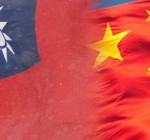For decades, there has been talk of “Emerging Asia”. The reality is that from the 2008 crash in US-EU financial markets, Asia has emerged and is now once again the primary continent on the globe, accounting for a rising share of output of goods and services, and with an accelerating pace of innovation, all this without a major war between any two major Asian powers since the 1979 conflict between China and Vietnam.It is not coincidental that growth has been quickest after the reduction intensions in the most economically dynamic corner of Asia – the eastern shores -caused by the “Peace in our time” policy adopted by Deng Xiaoping in contrast to that of “Permanent war” favoured by Mao Zedong. Because of the enervation of Chinese Communist Party (CCP) structures caused in large part by the Great Proletarian Cultural Revolution and other Mao-inspired measures, Deng was able to fend off challenges from ideologically conservative senior colleagues to his emphasis of growth by any means, subject to the retention of the CCP’s monopoly over political power.
While China has indeed experienced high growth since the 1980s, a fault line has emerged within the CCP, which is the appearance of what may be termed a “ruling caste” within the party, with descendants of party leaders and their progeny having an inside track in getting control of positions of preferment. Aware of the tensions within the cadre that is the consequence of the emergence of a privileged (and birth-based) caste within what prides itself on being a proletarian party, the CCP leadership core (i.e. the Standing Committee of the Political Bureau and its informal group of senior advisors) has been seeking to divert attention to outside threats (more perceived rather than actual) in a manner counter to the “Peace in our time” policy of Deng Xiaoping.
Exactly as the Pakistan army is an obstacle to the development of that country, because of its draft on resources and a strategy of stoking tensions with countries which could benefit Pakistan were there to be better relations, the People’s Liberation Army (PLA) is emerging as an obstacle to the continued progress of China towards middle income status.
Since Bo Xilai attempted to launch what was clearly an internal coup against the preferred leadership choices of the CCP core six years ago, those who had been at risk as a consequence have allowed the PLA to set external policy in a manner seen only in Pakistan, which incidentally is a country whose military has very close linkages with the PLA. Over the past six years, and entirely because of the hectoring and threatening tone adopted by policy mechanisms of the People’s Republic of China as a consequence of pandering to the (naturally) militaristic instincts of the PLA senior commanders, China’s relationship with several countries in Asia has deteriorated to the point where each is now seeking closer engagement with the United States and with other powers that could be relied upon to come to their assistance should there be an operationalisation of the threats uttered by Chinese authorities.
M.D. Nalapat is Director of the School of Geopolitics at Manipal University, and a regular contibutor to Gateway House.
This is an excerpt of a paper presented by M.D. Nalapat at the International Conference on New Asian Dynamics and the Role of Taiwan. To read the full paper published by Taiwan Brain Trust click, here
You can read more Gateway House content here.
For interview requests with the author, or for permission to republish, please contact outreach@gatewayhouse.in.
© Copyright 2014 Gateway House: Indian Council on Global Relations. All rights reserved. Any unauthorized copying or reproduction is strictly prohibited


